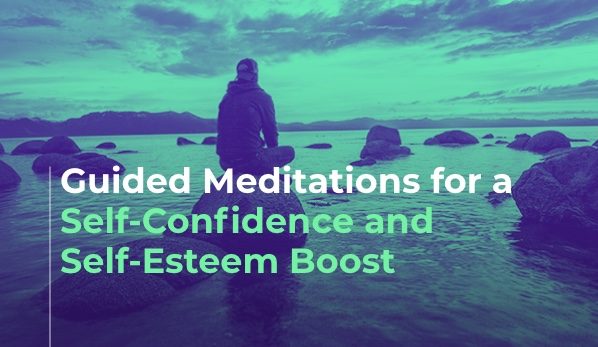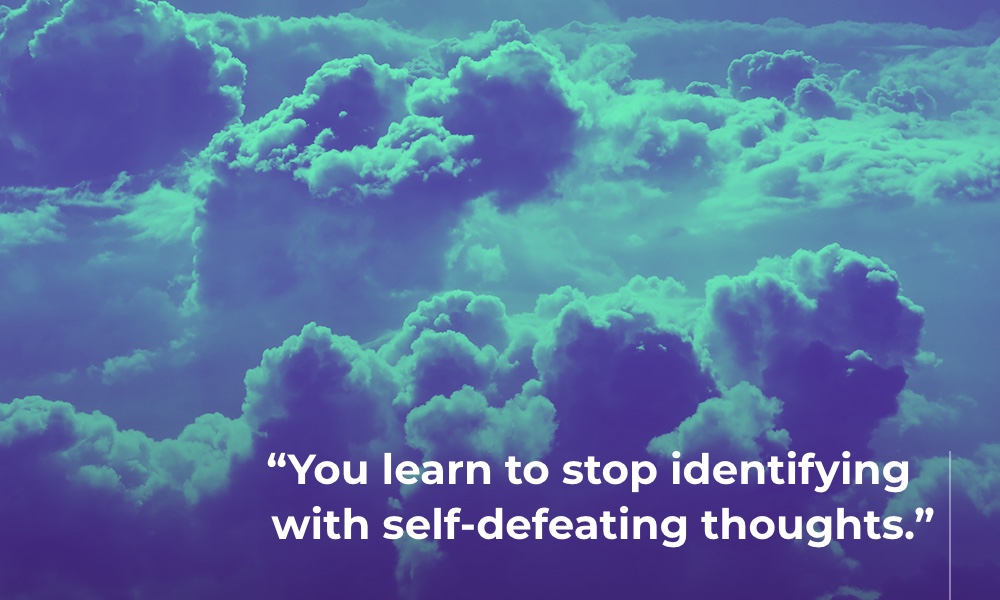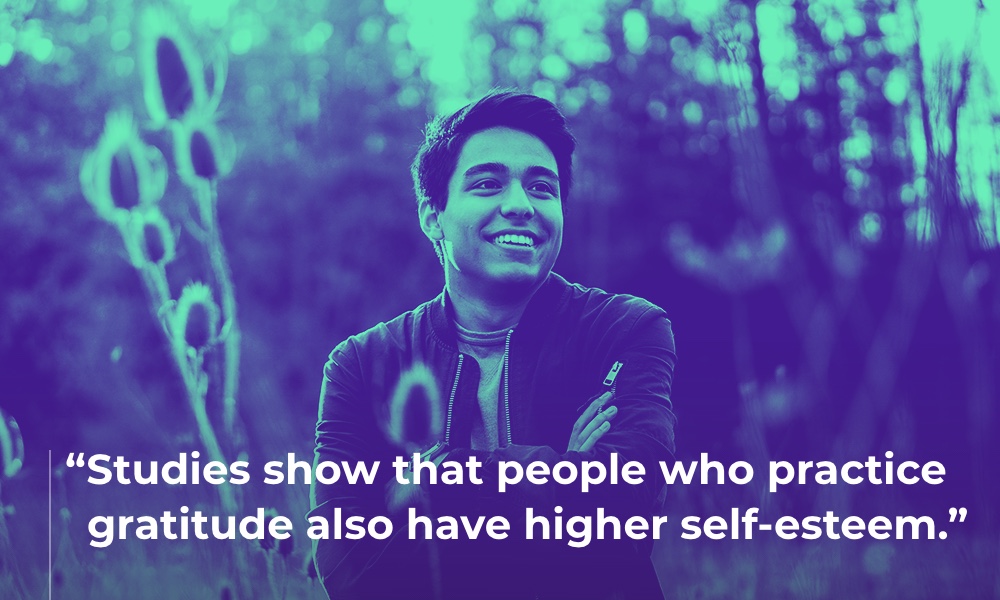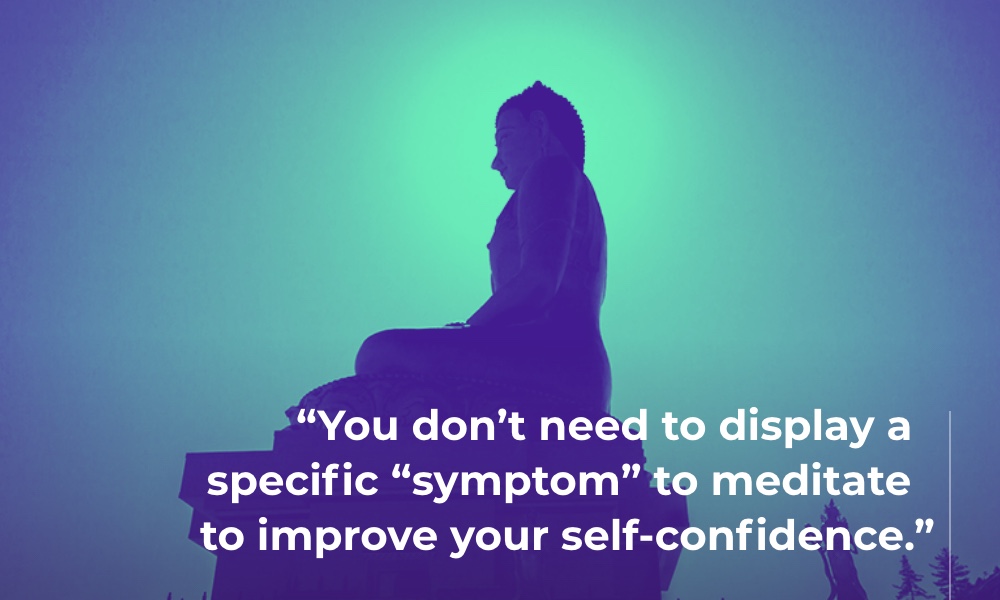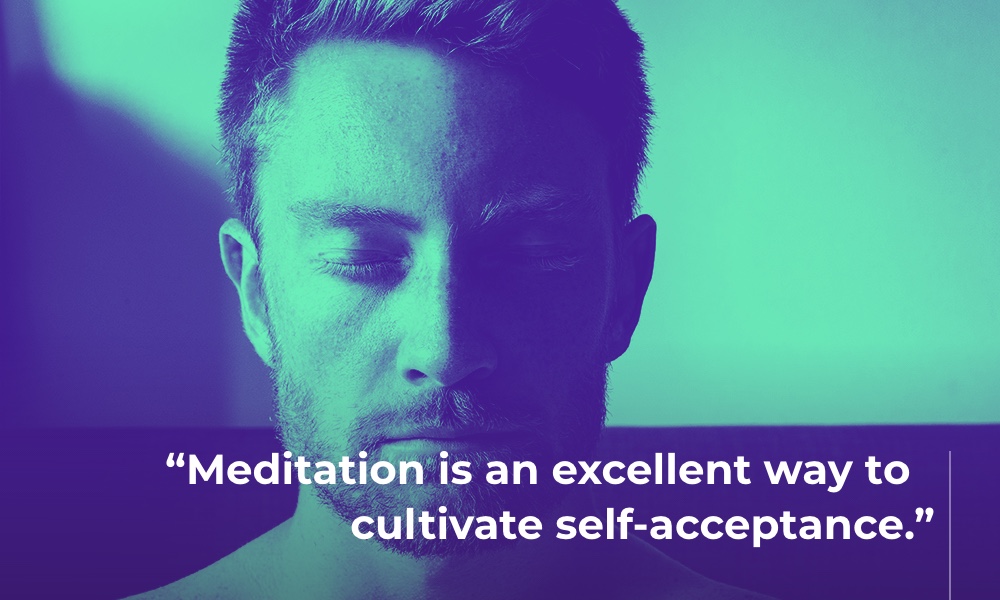Your self-esteem and self-confidence have a large influence on the decisions you make and how you perceive the world around you. If you don’t have high self-esteem, you’re more likely to struggle with job performance, have issues in your relationships, face problems with addiction, and refrain from pursuing your goals. Thankfully, meditation can help you improve your self-confidence and self-esteem. Let’s learn how!
What are Self-Confidence and Self-Esteem?
We’ll start by discussing the difference between these two important qualities.
You can think of self-confidence as your ability to trust yourself. When you have high self-confidence, you’re generally sure that the choices you make are the right ones. You understand that you’re able to do the things you want to do.
When people with high self-confidence inevitably make mistakes and experience failure, they tend to use those experiences as learning opportunities. They don’t over-identify with their defeats or spend too much time thinking about them. In contrast, people with low self-confidence may let excellent opportunities pass them by because they don’t feel capable of accomplishing them.
Your self-esteem is your measurement of your own self-worth. People with high self-esteem know that they are automatically valuable, and nothing they do will add or subtract from that inherent value. People with high self-esteem are open to criticism and mistakes because they know that these things help them grow. On the other hand, people with low-self esteem may be sidelined by negative feedback or failure, and they may even make it a part of their identities.
How Meditation Improves Self-Confidence and Self-Esteem
Meditation helps you improve your self-worth and mental health in several ways. Here are a few:
- Meditation helps you notice your thoughts so you can create distance from them. This is important because you can’t change a thought pattern until you know it’s happening. When you become aware of your negative self-talk, you’re able to consciously release it. In this way, you learn to stop overthinking and identifying with self-defeating thoughts. Instead, a meditation practice teaches you to simply watch them pass by, like watching clouds float by in the sky.
- Meditation helps you stay present and live in the moment. This is critical for self-esteem. When you’re truly focused on the present moment, it’s impossible to have self-defeating thoughts. Instead, you direct all of your awareness toward what you’re doing—like cooking a meal or talking with a friend.
- Meditation reduces the amount of time you spend thinking about yourself. This is a fantastic thing. Low self-esteem is often a result of being preoccupied with (negative) thoughts about yourself. But regular meditators enjoy reduced activity in the “me-center” of their brains.
A regular meditation practice is a vital part of a strong wellness routine. When you’re caring for your physical and mental health with a strong wellness routine, you tend to feel more self-assured. And a regular meditation practice is an essential part of any solid wellness routine.
Types of Meditation for Self-Confidence and Self-Esteem
Any meditation that centers you in the present moment and helps you let go of unhelpful thoughts is a great tool for building confidence and self-esteem. Here are a couple of methods we recommend:
Mindfulness Meditation
A mindfulness meditation brings all of your attention to the present moment. You can practice mindfulness meditation right now. Start by taking a couple of deep breaths. Then return to a regular breathing pattern and draw attention to your breath. Follow each inhale and each exhale. As distracting or judgemental thoughts arise, acknowledge them and then let them go. Learning to be present in the moment builds inner strength, which helps you release negative self-talk both in and out of meditation.
Loving-Kindness Meditation
Loving-kindness meditation is about fostering a sense of self-love. To do a loving-kindness meditation session, begin by bringing awareness to your breath. Then, start to create positive thoughts and feelings of compassion and love. Send those thoughts and feelings toward yourself. It can help to envision yourself as a child hearing all of the loving words. Once you’ve filled up your own love meter, you can send loving thoughts toward others. Loving-kindness meditation helps you replace negative self-talk with positive self-talk.
Visualization Meditations
Guided visualizations can help you grow your self-esteem. Meditation apps like Primed Mind help you cultivate self-confidence by visualizing yourself succeeding. Visualization helps you remember times when you’ve been self-confident, and it encourages you to draw on those images whenever you need a self-worth boost.
Gratitude Meditation
During a gratitude meditation, you focus on the things you’re grateful for in your life, like your relationships, your career, or your health. Not only does this make you a happier and more appreciative person, but studies show that people who practice gratitude also have higher self-esteem.
Additional Ways to Boost Self-Confidence and Self-Esteem
Meditation for self-confidence is most effective when used in conjunction with other esteem-boosting habits, such as:
- Getting seven to nine hours of sleep each night
- Eating balanced meals
- Getting regular exercise
- Surrounding yourself with positive people who uplift you
- Wearing clothing that makes you feel confident
- Regularly participating in activities you enjoy, like sports or hobbies
- Keeping the promises you make to yourself
- Maintaining a gratitude journal
- Doing good for others by volunteering or practicing random acts of kindness
- Having good posture
A Guided Meditation for Self-Confidence and Self-Esteem
Frequently Asked Questions About Meditation for Self-Confidence
If you’re new to self-confidence meditation, you may have some questions. Here are a few we hear often:
What Are the Signs of Low Confidence?
A lack of confidence manifests itself in countless ways. You don’t need to display a specific “symptom” to meditate to build self-confidence. But it’s helpful to know what low self-esteem can look like. It could be:
-
- Feeling hostile or irritable
- Being very sensitive to criticism
- Withdrawing from your social circle
- Obsessing over personal problems
- Feeling like you don’t deserve the good things in your life
- Hearing a harsh or judgemental inner voice
- Having persistent negative thoughts
- Struggling to speak up for yourself
- Self-sabotaging your success when things start to go well
If you identify with one or more of these traits, it doesn’t mean you’re doomed. It simply means you may benefit from meditation for self-confidence!
Why Do I Lack Self-Confidence?
For many of us, a lack of self-confidence can be traced back to childhood. If you experienced any situation that made you question your worth as a child, it can translate into low self-confidence as an adult. This may have been something big, like abuse from a parent or severe bullying at school. Or it could have been something you may not even remember, like an off-hand critical comment from a trusted authority figure. Or maybe getting rejected from a team or group dug deep into your subconscious long ago.
The reality is that everyone experienced events in their childhood that made their confidence falter. But now, it’s up to us as adults to work on repairing our self-image. Luckily, meditation works wonders here.
How Do I Teach Myself Confidence?
Like all good traits, confidence begins with acceptance. Accepting your flaws and mistakes right along with your good qualities and successes will build your sense of self-worth over time. Meditation is an excellent way to cultivate self-acceptance.
Another excellent way to eliminate self-doubt is to challenge yourself. When you step outside of your comfort zone and do something new, you prove to yourself that you’re capable of learning, growing, and taking on new things.
Over time, this has a tremendous impact on your self-assurance.
Can Mindfulness Increase Confidence?
Absolutely! Mindfulness requires you to be aware of the thoughts that run through your mind. When you practice mindfulness, you can catch any self-defeating thought patterns and work on releasing them.
At the same time, mindfulness also means that you’re dedicating all of your focus to the present moment. When all of your attention is on what you’re doing (like making a cup of coffee or writing an email), you don’t have the capacity to think negative thoughts about yourself.
How Can I Meditate on Self-Love?
A loving-kindness meditation is excellent for meditating on self-love. Start by mentally sending yourself compassion. We’re usually our own harshest critics, and self-love demands that we forgive ourselves for our flaws and mistakes.
Using Primed Mind to Build Self-Worth and Self-Love
Self-confidence and self-esteem are critical for those who want to take big risks and get big rewards. But many high-achieving people struggle with these essential traits. Luckily, meditation is an effective, natural solution to help boost your self-worth and general well-being.
By requiring you to slow down and observe your thoughts, meditation helps you bring awareness to the damaging stories you tell yourself about your own worth. Once you’re aware of your harmful self-beliefs, you have the power to change them. Then, it’s only a matter of time until you see your self-confidence and self-esteem improve.
Primed Mind offers a wide range of audio programs, from traditional guided meditation to personal development programs that can help you unlock the best version of yourself. Try our 7-day course for improving self-confidence, and start engaging in life with more self-assuredness and purpose!

